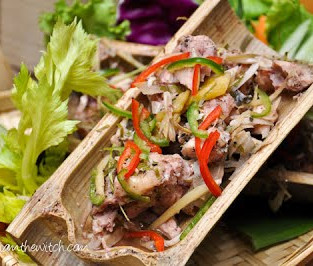Gawai Dayak
- Phoebe Yap

- Mar 10, 2020
- 2 min read
Gawai Dayak literally translates into 'Dayak Festival' and it is a harvest festival that celebrates harmony, unity, and the end of the harvest season, while ushering in another season of bountiful goodness. Preparations for Gawai Dayak begins on 31 May, where the celebrations typically start with a ceremony called 'Muai Antu Rua' to cast away the spirit of greediness, thus signifying the non-interference of the spirit of bad luck in the upcoming celebrations.
At the stroke of midnight, a gong is sounded and the tuai rumah (the chief of the longhouse) will lead everyone to make a toast, wishing each other gayu-guru, gerai nyamai'(long life, health, and prosperity).
The Ibans also celebrate other festivals including festivals for war, procreation, health, healing, and weaving rituals. Note: While the Iban ancestors have practiced animistic beliefs for centuries now, there are quite a number of them that have turned to mainly Christianity, and a smaller group that has converted to Islam. Despite the conversion, the Iban people are mostly known to respect their cultural festivals and typically return to their ancestral villages to participate in these festivals, like Gawai Dayak.
How can we missed out the food on Gawai Dayak?
(a) Pansoh Manok
The Iban tribe are from Sarawak, Borneo. Their traditional foods are called pansoh manok (ayam pansuh), which features chicken and lemongrass cooked in a bamboo log over an open fire. This natural way of cooking seals in the flavours and produces astonishingly tender chicken with a gravy perfumed with lemongrass and bamboo. The food (meat, chicken, fish, vegetables and even rice together with the spices) will all be put together into the bamboo stem, then directly placed over an open fire to be cooked. The uniqueness of using the bamboo stem to cook is that the bamboo will give a special aroma and texture to the food where it’s impossible to have using other methods such as using woks.
(b) Tuak
Tuak in Sarawak is a general term to refer to any naturally fermented alcoholic drink: you can come across versions like tuak epal and tuak anggur, which are essentially primitive forms of cider and wine respectively. Tuak is the welcoming drink for the Dayaks especially in the longhouses and villages in Sarawak. Today, Tuak has made it's mark across the South China Sea as many Sarawakians working in the Peninsular Malaysia celebrate Gawai here. There are very few Tuak makers in peninsular Malaysia and the good batches are usually reserved for personal collection and consumption.
Questions:
1. What is the meaning of Muai Antu Rua?
2. Who will lead everyone to make a toast?
References
Lim, J. (2017). Guide to tuak. https://www.timeout.com/kuala-lumpur/bars-and-pubs/guide-to-tuak
Pei, G. P. (2020). Gawai celebration incomplete without essential tuak. New Straits Times. https://www.nst.com.my/news/nation/2019/06/493424/gawai-celebration-incomplete-without-essential-tuak
Raphael, J. (2018). The creative tuak maker. https://www.theborneopost.com/2018/06/03/the-creative-tuak-maker/
Shah, R. (2015). “Ayam pansuh”- A Sarawak exotic delicacy loved by many. Malay Mail. https://www.malaymail.com/news/eat-drink/2015/06/28/ayam-pansuh-a-sarawak-exotic-delicacy-loved-by-many-video/923543


















Comments